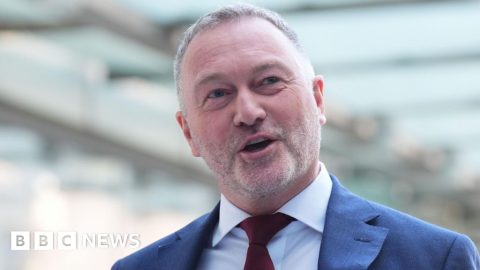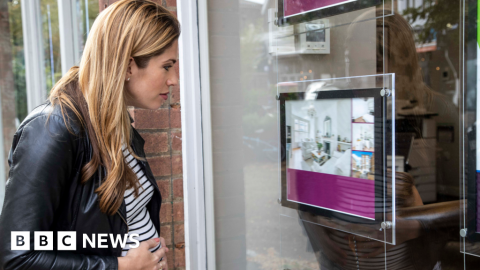
The Bank of England has opened the door to cutting interest rates in August in what would be the first drop in borrowing costs for more than four years.
On Thursday, the Bank voted to hold interest rates at 5.25% in a close run decision.
Earlier this week, figures revealed that inflation – which measures the pace of price rises – had slowed to 2% in May, which is in line with the Bank of England’s target. However, there are risks that some areas of inflation remain high.
But the minutes from the gathering of the Bank’s rate-setting committee signalled a significant change in tone, indicating a majority could vote for a cut when they meet again on 1 August.
They say they will look at whether areas of concern are “receding”.
It said: “On that basis, the committee will keep under review for how long [the] bank rate should be maintained at its current level.”
While not a done deal, this language shows a clear signal to the markets and the public that after the Bank completes its new forecasts for the economy, a rate cut is now the most likely outcome at its next decision.
Wednesday’s inflation data showed that price rises for services – which reflect the cost of items such as cinema tickets, restaurant meals and holidays – remained higher than expected.
But the minutes say that the slow fall in services inflation reflects one-off factors, including the rise in the national living wage and bills that automatically rise by inflation, such as broadband and mobile.
Those committee members leaning towards a cut, which appear to include the key Bank of England leadership, are playing down the strength of underlying inflationary pressures.
If the Bank does go ahead with an interest rate cut in August, it would be the first one since March 2020 when the UK was heading into the first Covid lockdown.
Details from this month’s meeting showed that the Bank’s committee voted 7-2 to hold rates, but the result was not as cut and dried as it had been previously. For three members, voting to hold this month was a “finely balanced” decision.
The Bank of England’s governor, Andrew Bailey, said: “It’s good news that inflation has returned to our 2% target.
“We need to be sure that inflation will stay low and that’s why we’ve decided to hold rates at 5.25% for now.”
The Bank of England is independent of the government and its main role is to keep inflation stable at 2%.
In response to high inflation, the Bank in recent years has raised, and then kept interest rates at a high level in an attempt to slow it down and ease the cost of living.
Higher interest rates has meant the cost of borrowing money has increased for things such as mortgages, credit cards and loans, however, returns on savings have risen.
The theory behind rising rates is that it will slow inflation, but it can also drag on economic growth as businesses may put off investment or hiring, which could mean less jobs being created.









Recent Comments